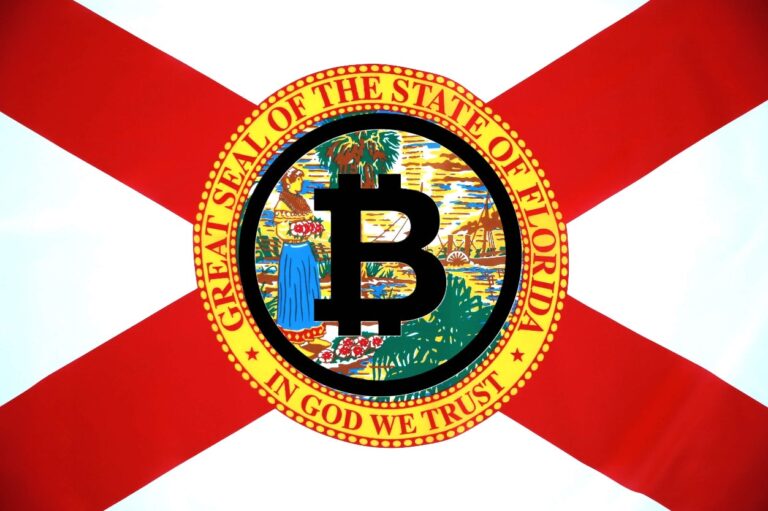Florida’s Chief Financial Officer (CFO), Jimmy Patronis, dropped a big announcement: the state holds about $800 million in crypto-related investments. This isn’t just some headline for financial geeks—it’s a sign of how the financial world is changing, fast. Let’s break down what this means, why it’s important, and why understanding it can benefit your future.
The Core Idea: A State Going Big on Crypto
Imagine your state putting part of its savings into cryptocurrency. That’s what Florida is doing with its retirement fund money, with Patronis even suggesting it could increase if former President Donald Trump wins the upcoming election. This move reflects a big step in the relationship between traditional finance and digital assets.
Why Is This Important?
- Growing Legitimacy of Crypto: Florida’s investment isn’t just a random bet; it’s a sign that governments are starting to see cryptocurrency as a legitimate asset. This isn’t only about trading or speculation—it’s about diversifying investments and preparing for the future. Key term: diversification.
- Political Influence: Patronis mentioned Trump’s proposal to create a “crypto stockpile” and set up an advisory council for digital assets. This isn’t just business—it’s politics too. Leaders see crypto as a tool for financial independence and even as a strategic counter against big powers like China. Key concept: geopolitical influence.
- Financial Security Against Risks: Patronis made it clear that he sees crypto as a hedge (a safety net) against too much control by the federal government and the idea of a centralized currency. Crypto is known for being decentralized, meaning it isn’t controlled by one single body like a central bank. Understanding this helps you see why some politicians favor it: it represents freedom and financial independence.
Other States Joining In
Florida isn’t alone. For example, the State of Wisconsin Investment Board reported owning $163 million in spot bitcoin ETFs, and Jersey City has also made crypto investments. This shows that crypto’s reach is expanding across different parts of the U.S. Remember: When major institutions move into a space, it signals growth and trust in that field.
Why This Field Matters to You
As a 20-year-old looking to understand the world of technology and finance, learning about crypto investments by state governments gives you a front-row seat to how finance is evolving. It shows:
- Tech and Policy Crossover: Crypto isn’t just about tech; it’s now a matter of policy and strategy.
- Economic Opportunities: States investing in crypto could mean new jobs, research, and financial growth in this sector.
- Future Relevance: Crypto and blockchain technology are becoming essential knowledge areas. Whether you’re looking at tech careers, finance, or even political science, this is part of the future landscape.
Steps to Build on This Knowledge:
- Understand Crypto Basics: Learn about blockchain, Bitcoin, and other major cryptocurrencies.
- Keep Up with Policies: Watch how policies shift with political changes, especially with leaders like Trump pushing for national strategies.
- Follow Investment Trends: Keep an eye on how other states or countries are investing in crypto and why they’re doing it.
- Consider Risks and Benefits: Crypto is known for its volatility. Understand both its potential rewards and its risks.
Key Words to Remember:
- Crypto-Related Investments: Investments tied to digital assets like Bitcoin or related financial instruments.
- Hedge: An investment made to reduce the risk of adverse price movements in an asset.
- Decentralized Currency: A type of currency not controlled by a central authority.
- Geopolitical Influence: The way global powers use assets like crypto to gain strategic advantage.
Why Build on This Knowledge? Understanding crypto’s role in finance and policymaking gives you a competitive edge. Whether you’re thinking of investing, working in finance or tech, or just wanting to be an informed citizen, knowing how these moves shape the future helps you make smarter decisions. Crypto isn’t just a passing trend; it’s shaping up to be a cornerstone of the future economy.



